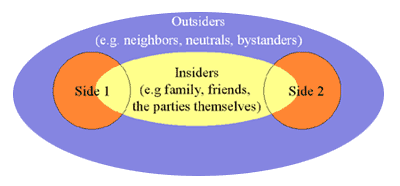The Teacher: Respect in Lucknow
In 1992, thousands of people died in Hindu-Muslim riots triggered by the destruction of a mosque at Ayodhya by a group of Hindu militants, yet in the state capital of Lucknow, only forty miles away from Ayodhya, there was not one casualty. The reason? In part, it was the influence on the local culture of the largest private school in the world, the City Montessori School. Founded in 1959, the school has over twenty thousand students from kindergarten through twelfth grade. Influenced by the teachings of Mahatma Gandhi, it seeks to embue its Hindu, Sikh, and Muslim students with the value of religious and cultural tolerance.
During daily reflection time, teams of students use stories and texts from the world’s religions to engage their fellow students in conversations about virtues like love and truthfulness. Students also visit India’s holy places – Hindu, Sikh, Buddhist, Muslim, Christian, Jewish, Baha’i, and Jain – in order to learn understanding and respect for other faiths. Classroom activities center around collaborative problem-solving and teachers go out of their way to commend and reward students for consideration of others. The school actively encourages parents and grandparents to be involved in designing the school curriculum and to reinforce the principles of tolerance and cooperation at home.
Perhaps not surprisingly, then, during the 1992 conflict, thousands of students and parents responded by marching through Lucknow, singing songs of unity and carrying posters with slogans like “The name of God is both Hindu and Muslim” and “God is One, Mankind is One, All Religions are One.” Meanwhile, all the city’s religious leaders met at the school and, addressing members of the community, spoke out for coexistence, surrounded by models of a Hindu temple, a Muslim mosque, and a Christian church. Such efforts helped Lucknow escape the violence.




